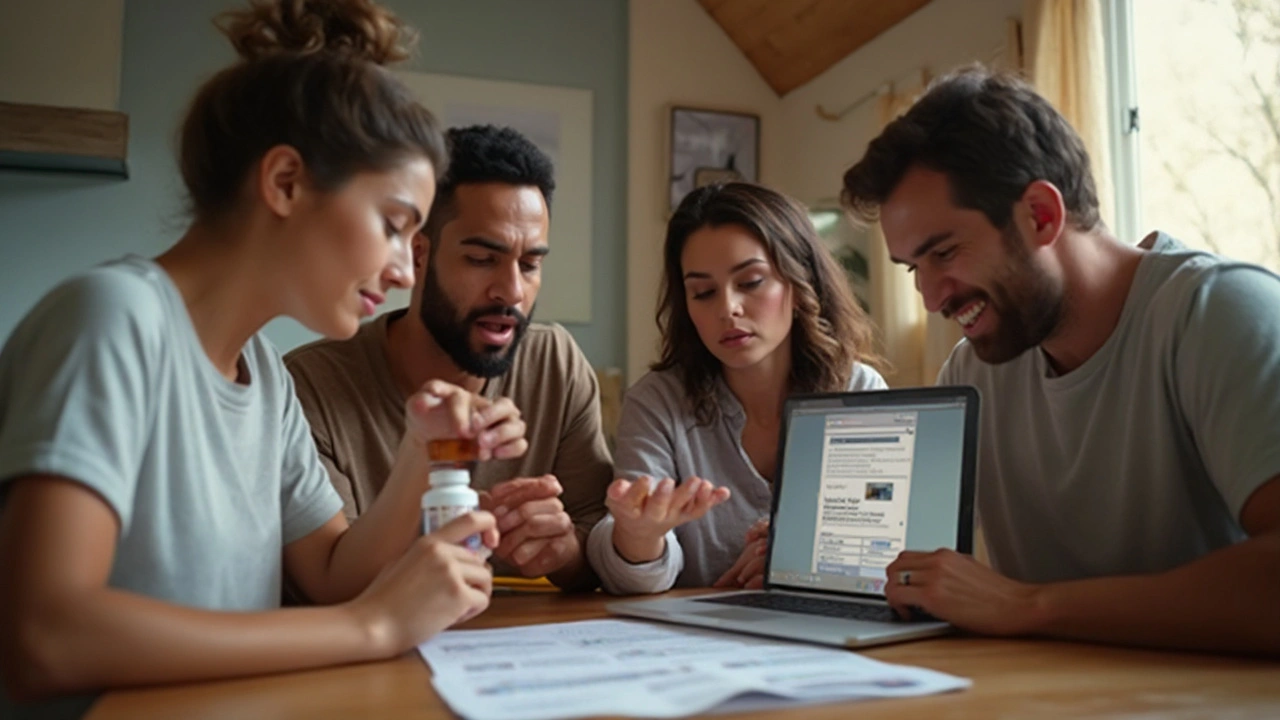Hydrochlorothiazide – What It Is and Why You Might Need It
If your doctor mentioned hydrochlorothiazide, you’ve probably heard it called a water pill. It’s a thiazide diuretic that helps your body get rid of excess salt and water. By doing that, it lowers blood pressure and reduces swelling caused by heart failure, kidney problems, or liver disease. Most people take it once a day, usually in the morning, so they don’t have to run to the bathroom at night.
How Hydrochlorothiazide Works
Think of your kidneys as a filter. Hydrochlorothiazide tells the kidneys to let more sodium and water flow out in the urine. Less sodium means less water stays in your bloodstream, which drops the pressure on your heart and blood vessels. The result is lower blood pressure and less fluid buildup in your legs or lungs.
The drug starts working within a few hours, but you’ll see the biggest effect after a week or two of steady use. Your doctor might start you on a low dose—usually 12.5 mg to 25 mg—and then adjust based on how you feel and what your blood pressure numbers look like.
Tips for Safe Use and Buying
First, always follow the dosage your doctor gave you. Taking more won’t make it work faster and can cause headaches, dizziness, or low potassium levels. To keep potassium up, eat bananas, oranges, or a small serving of potatoes. Some doctors add a potassium‑saving medication if they think you need extra help.
If you’re buying hydrochlorothiazide online, stick to reputable pharmacies that require a prescription. Look for sites that display a valid pharmacy license and have clear contact info. Avoid any store that offers the drug without a prescription or asks for payment via weird methods.
Watch out for side effects. Common ones include increased urination, mild muscle cramps, or a small rise in blood sugar. Serious issues like severe dizziness, rapid heartbeat, or signs of low potassium (like muscle weakness) need a doctor’s call right away.
Hydrochlorothiazide can interact with several other meds. If you take blood pressure drugs, heart meds, or lithium, let your doctor know. Even over‑the‑counter pain relievers like ibuprofen can change how well the water pill works.
Store the tablets at room temperature, away from moisture and heat. Don’t crush or chew them unless your doctor says it’s okay—doing so can change how the body absorbs the drug.
Finally, keep track of your blood pressure readings. If they stay high after a few weeks, or if you feel unusually thirsty or fatigued, schedule a follow‑up. Adjusting the dose or adding another medication might be necessary.
Hydrochlorothiazide is a simple, inexpensive way to manage high blood pressure and fluid buildup when used correctly. By knowing how it works, watching for side effects, and buying from a trusted pharmacy, you can keep your heart and kidneys healthier without hassle.
Hydrochlorothiazide Allergy Risks, Precautions, and the Best Alternatives
Curious about the allergy risks of hydrochlorothiazide? This article unpacks how this common blood pressure medicine can trigger allergic reactions, who is most at risk, what symptoms to watch for, and smart alternatives to consider. You'll get straight-talking advice, real-world tips, and answers to common concerns around safety and side effects. If you or someone you love relies on hydrochlorothiazide, this deep dive will give you solid info to make safe choices and discuss options with your doctor.
